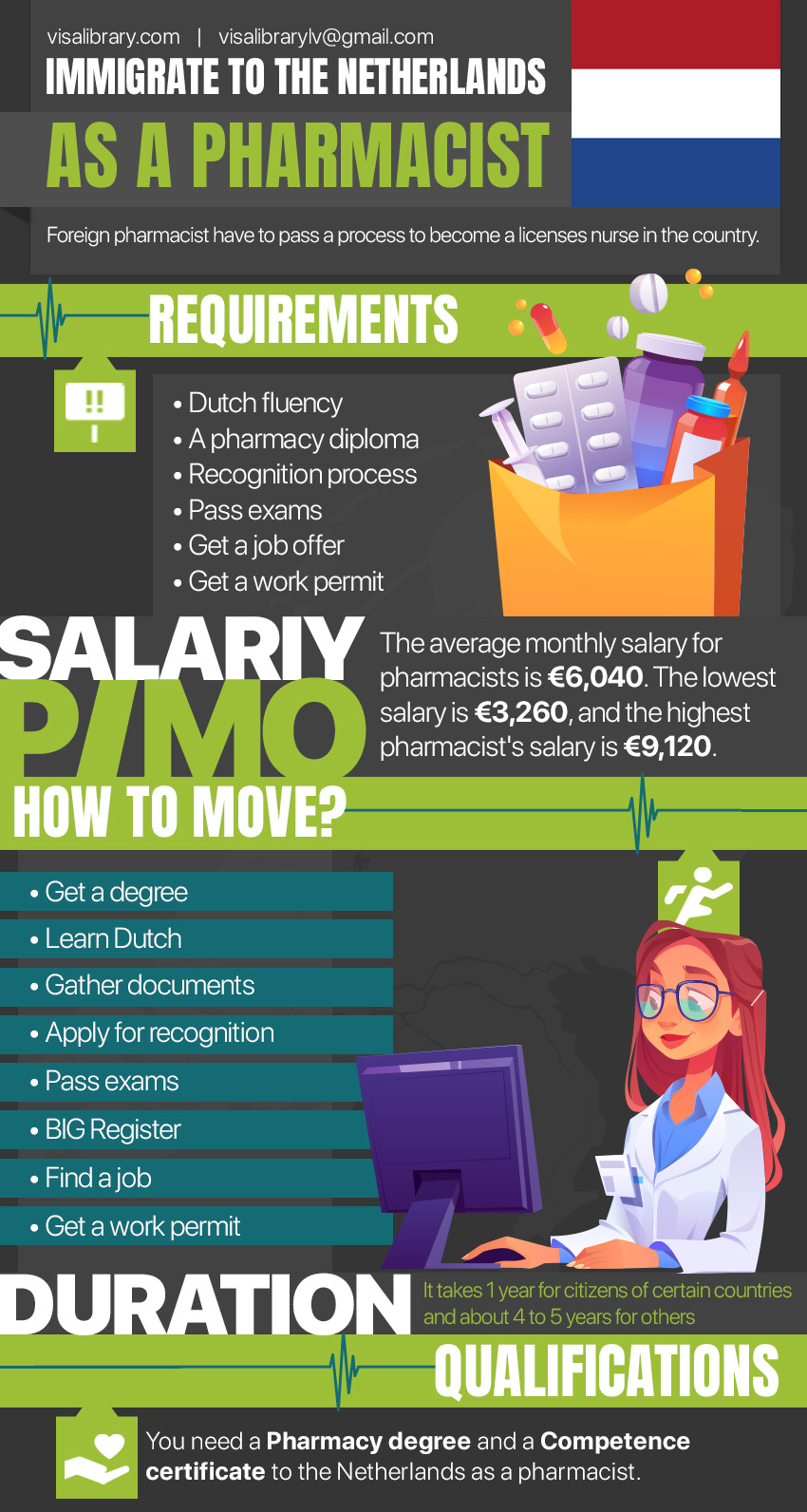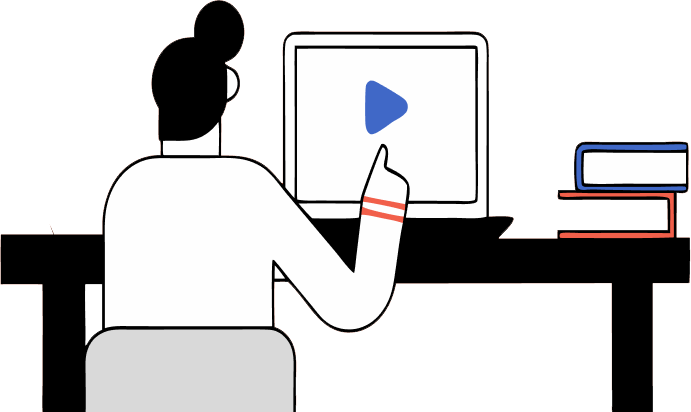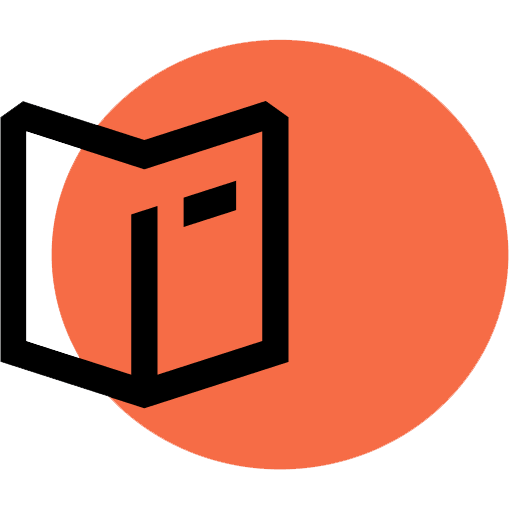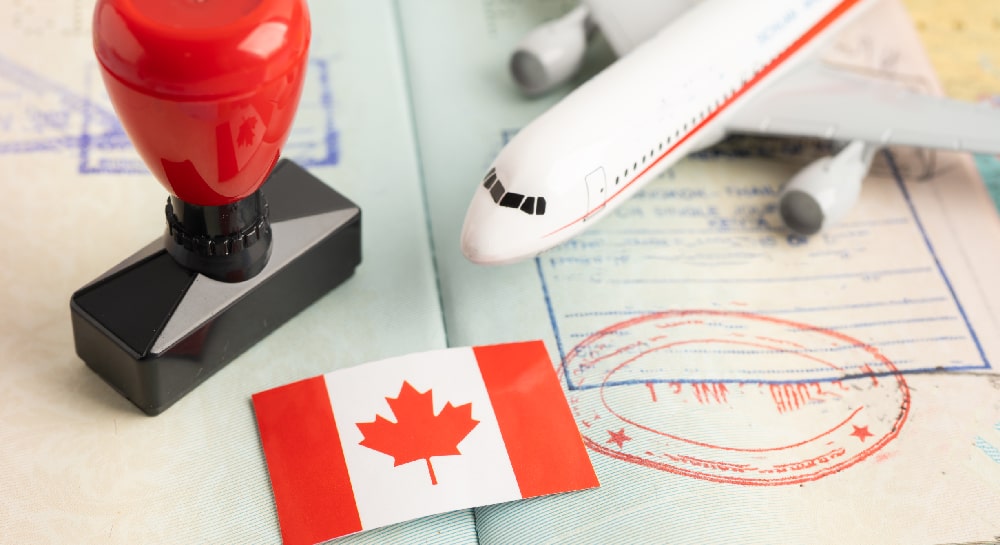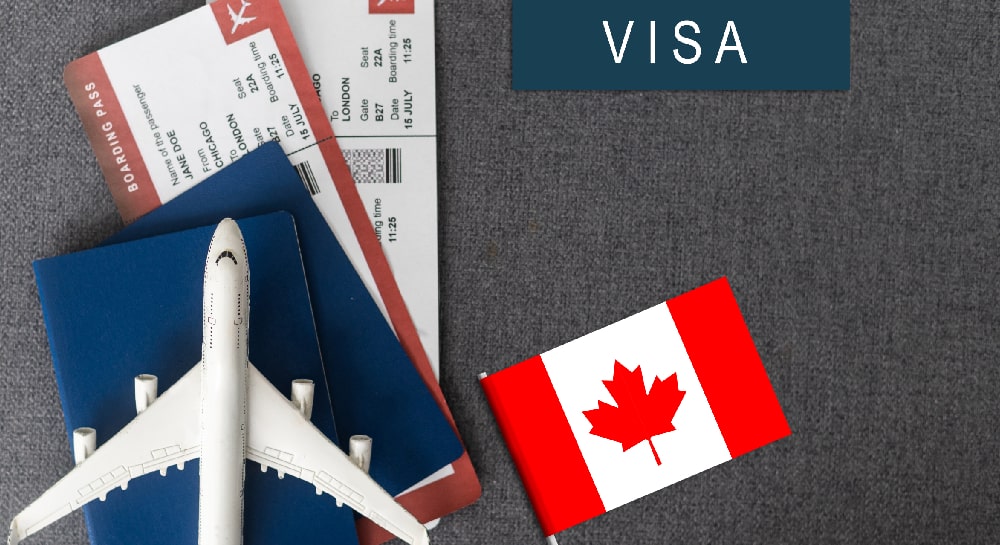When you think of immigration to Europe, the first option that comes to mind is often the Netherlands. It’s one of the countries that welcome skilled workers and international students from around the world. Friendly people are nice to immigrants, and the strong economy needs these people. The great nature and culture attract everyone as well. Now that you want to immigrate and work in the Netherlands as a pharmacist, this Visa Library page will bring you the answer to all of your questions.
How to immigrate to the Netherlands as a pharmacist?
There are some jobs in the Netherlands that are protected titles. It means you need approval or permission from the Dutch government to work in them. A pharmacist is also one of them so is the below list of occupations. If you get your degree in a foreign country and not the Netherlands and want to work in one of them, you need recognition from the government. You have to send them your documents, so they assess your certificate and decide whether you can work as a pharmacist or not.
- Remedial educationalist
- The registered dental hygienist (temporary registration)
- Pharmacist
- Nurse
- Midwife
- Health psychologist
- Doctor
- Dentist
Get your pharmacy degree.
The first step you have to pass is to get your degree as a pharmacist in a foreign country or your home country. Your certificate must be from a verified university or education center and valid in your home country.
If you need to get another certificate to become a pharmacist in your home country, you’d better receive it and gather as much data and documents as you can.
Are you eligible for a Declaration of Professional Competence?
You need a Declaration of Professional Competence to work as a pharmacist in the Netherlands. But you must find out whether you are eligible to apply for it. The verified way to find out you are qualified to apply for it is to check your conditions with the Dutch Ministry of Health Wellbeing and Sport. They have a free tool that determines whether you are qualified to apply and receive it or not. There you have to answer some questions:
- Your profession.
- Your nationality.
- The place you want to work in.
- The country you got your degree.
- Have you registered with the BIG Register?
- Has your degree been recognized?
- Has your degree been recognized in the EU or Switzerland?
This is the Advisory guide BIG register and helps you with the process. First, you need to answer its questions to know whether you can continue the process.
Prepare your application for recognition.
At this stage, you need to gather the supporting documents and send them to the Dutch officials for recognition. You need to work carefully to collect the documents in the required order and according to the instructions. If not, your application will take longer. This is a list of the documents you have to gather:
- Declaration of Professional Competence application form.
- Appendix application form.
- A certified copy of your diploma.
- A certified copy of your course overview of the vocational training
- A certified copy of the training programs you have passed.
- Proof of identity.
- CV.
- A copy of your residence permit document (front and back).
You might have to submit further documents, and the decision is with the Dutch officials and the Dutch Ministry of Health Wellbeing and Sport.
After you have gathered all of the documents, you need to send them to:
CIBG
Recognition of foreign diplomas
PO Box 16114
2500 BC The Hague
Create an account on My BIG register.
There is a portal called “My BIG register” that the Dutch officials will communicate and send all of the messages through it. You need to create an account and activate it to receive the messages. The Dutch officials will notify you through the My BIG register account if they ask for another document. You need to check it regularly to know about the updates.
The website has detailed information on how to create an account when you are inside or outside of the Netherlands.
Assessment of your degree and documents.
After you send all of your documents and degree, the Dutch officials will begin assessing them. Nuffic is responsible for the evaluation of your documents. After they are done and if they are satisfied, they ask for the original form of your documents.
It might take longer to review your application as they process the applications by order. So be patient and wait for the result. In the meantime, check your BIG Register account to know of any updates and request further documents.
Read our comprehensive article to learn how to immigrate to the Netherlands as a doctor.
Pass the AKV test.
After you send the documents and complete the BIG-register application, you must pass the AKV language test. In case you wish to learn more about this exam, the procedure, and how to prepare yourself, you can ask for a counseling session with Dutch officials.
You will receive an invitation to take the test in your account and the related information, including a unique access code that you need to register for the exam on the Babel website.
The test is to evaluate your Dutch and English language proficiency in the following:
- Reading,
- Writing,
- Listening, and
- Speaking.
The test also assesses your knowledge and understanding of the Dutch Healthcare System.
There are four parts in two test sessions with the AKV test.
IELTS 6.5 and TOEFL 600 and the Dutch B2/C1 level skills are enough to pass the test.
If you have an IELTS, TOEFL, or Cambridge certificate, you may be eligible for an exemption from the English component of the AKV test.
You can find more information about the counseling, the available dates of the exam, and registration from the Dutch Ministry of Health Wellbeing and Sports page.
You want to immigrate and work in the Netherlands as a pharmacist. So you do not need to pass the BI exam. This is only for doctors, dentists, and nurses who want to immigrate and work in the Netherlands.
Test Session 1
The first part of this test session is a reading comprehension test and a writing task about a medical topic. Then you have a presentation in the Q&A form with time limits.
Q & A is a situation in which a person or group of people asks questions, you have to answer, and another person or group of people answers them.
The second part is writing HPI. It stands for History of Present Illness (HPI): A description of the development of the patient’s present illness.
The third part is an English-language test.
The fourth part is a multiple-choice exam that examines your knowledge of the Dutch public health and healthcare system. Remember that this part is in Dutch.
There is a fee for the tests that you must pay as well:
- Academic professions: € 530
- MBO and HBO professions: € 190.
The results of these tests determine whether you receive a declaration of professional competence or if additional education is required.
If you want to cancel or change the exam date, you must look at the refund policy. If you cancel it on the exam date, you will not get back the cost.
This website is to register for the AKV language test and see the available dates.
All the information you must know about the test and the location to take it is in the letter you will receive in your BIG-register account.
Assessment of your application.
The Committee for Foreign Graduates in Public Health is responsible for the evaluation of your test result and degree. They are an independent committee that decides whether you are eligible to work as a pharmacist in the Netherlands. They might decide that you need further training or internship; you have to pass it to immigrate to the Netherlands as a pharmacist.
The committee will send the results to the Ministry of Health Wellbeing and Sport, and they inform you of the decision. It’s negative or positive. If you do not agree with their decision, you only have two weekends to respond to them. In case you do not respond, they will send you the final definite decision.
If the decision is positive, they will send you the Certificate of Professional Competence by post. It indicates that you can work as a pharmacist in the Netherlands.
Apply for BIG Register.
After you receive the Certificate of Professional Competence, you need to register in the BIG Register portal. This is a separate application, and you need to complete it.
There are separate application forms and documents that you must gather and send to the Dutch officials.
You’d better complete the registration as soon as you get the Certificate of Professional Competence. If you apply for the BIG Register after 5 years of getting the certificate, you need to submit additional documents. The Ministry of Health Wellbeing and Sport provides you with the application forms and the list of the documents you have to gather.
Find a job offer and get a work permit.
After your BIG Register is complete, you can work as a pharmacist in the Netherlands. But if you are a non-EU national, you need a work permit to work in the country. Every non-EU national who wants to work in the Netherlands needs a work permit.
You, as a pharmacist, can not apply for a work permit; only the Dutch employer can apply for it. So you need an employer willing to hire you. There are various ways to find a job in the Netherlands.
The first one is to look for a position through the websites that advertise job positions in the country. This is a list of them:
- Expatica jobs
- &Work
- Good Company
- Jouw ICT Vacature
- ExpatJobs
- College Life
- European Employment Services
- Stepstone
You need to prepare your resume and apply for the positions.
The second way is to get help from recruiters or employment agencies. They connect or match the employer and employees.
After you find the employer, you need to sign an employment contract with him/her. It’s part of the work permit supporting documents. The employment contract must explain every detail or terms of employment, such as:
- Duration of employment.
- Perks and bonuses.
- Working hours
- Type of job you will do.
- Tasks and responsibilities
- Salary
- The starting date of the employment.
- Confidentiality
- Etc.
After signing the employment contract, the employer must apply for a work permit. He/she can apply online or post the application process.
The employee needs to send some documents to the employer so he/she can apply for a work permit.
Documents like:
- A travel document or valid passport.
- A clean criminal record.
- Proof/evidence that the information on the application is true.
- Enough income earning
- Your employer must get recognized by the Netherlands government officials.
- the application form for a work visa.
The IND provides a checklist of documents to the employer. You must prepare the scanned form of documents in PDF format. In case your documents are not written in Dutch, English, French, or German, you must have them translated into one of these languages.
Then, it is required to have them legalized.
The IND will provide the employee with a checklist of the documents, and you need to submit them. After the work permit is issued, you need to apply for an MMV. It is the permission to enter the Netherlands and complete the stages.
You can find more information about the Netherlands work visa and its permit from the Visa Library article or watch the video we prepared on our YouTube channel.
Requirements to immigrate to the Netherlands as a pharmacist
You need some items to be eligible, immigrate and work in the Netherlands as a pharmacist. These items are general, and you might need further items. You’d better read the below section that explains the procedure you have to follow. You will find out the exact requirements for each step.
Dutch language fluency.
You need to become fluent in the Dutch language to immigrate and work in the Netherlands as a pharmacist. You will be working with people who speak Dutch. So you need to understand and communicate with them.
Moreover, you need to pass the AKV test to immigrate to the Netherlands as a pharmacist. This is part of the recognition process, and you must pass the exam. It’s in Dutch, and you need language proficiency to pass it. You also need English language fluency to pass the AKV test as it evaluates your English fluency, and part of the exam is in English.
Having a pharmacy diploma or degree.
You need a university degree to work in the Netherlands. You’d better get it from an approved university in the Netherlands. If you have received your diploma from a foreign country, you will have to send it for recognition. The Dutch officials will evaluate and assess it to determine whether you are qualified to work as a pharmacist in the Netherlands or not.
Passing the recognition process.
If you get your degree outside of the Netherlands, you need to send your documents and diploma to Dutch officials for recognition. They evaluate and assess them to know if they are qualified to work as a pharmacist in the Netherlands or not.
You can find the procedure to pass the recognition in the below section. You will have to send them supporting documents, pass the exams and then wait for the results.
After you pass the recognition, you will receive the Declaration of Professional Competence; then, you can work as a pharmacist in the Netherlands.
Passing the required tests and exams.
During the recognition process, there is an exam that you will have to pass, and it gets called the AKV test. If you want to immigrate and as a pharmacist in the Netherlands, you will have to pass it. Foreigners who want to immigrate and wrok a doctor, nurses and dentists, and some other health occupations must pass it as well. Doctors, dentists, and nurses have to pass a test called the BI exam, but you, as a pharmacist, do not need to pass it.
The test is in English and Dutch, so you need to be fluent in the two languages to pass it. You can find more information about the test in the below section.
Getting a job offer and a work permit.
Every non-EU national who wants to work in the Netherlands needs a work permit to work legally in the country. You need to get approval from the Dutch government to work as a pharmacist. This is aside from the recognition process.
To get the approval, you need a job offer from a Dutch employer. You will have to find an employer who is willing to hire you. The Dutch employer can only apply for a work permit, and you may not apply for it. The employee and employer have to sign an employment contract and submit the documents to the IND to receive the work permit. Then, you will have to apply for MMV, which is permission to enter the country and complete the procedure.
You must be able to find a job and gather the documents to apply for a work permit.
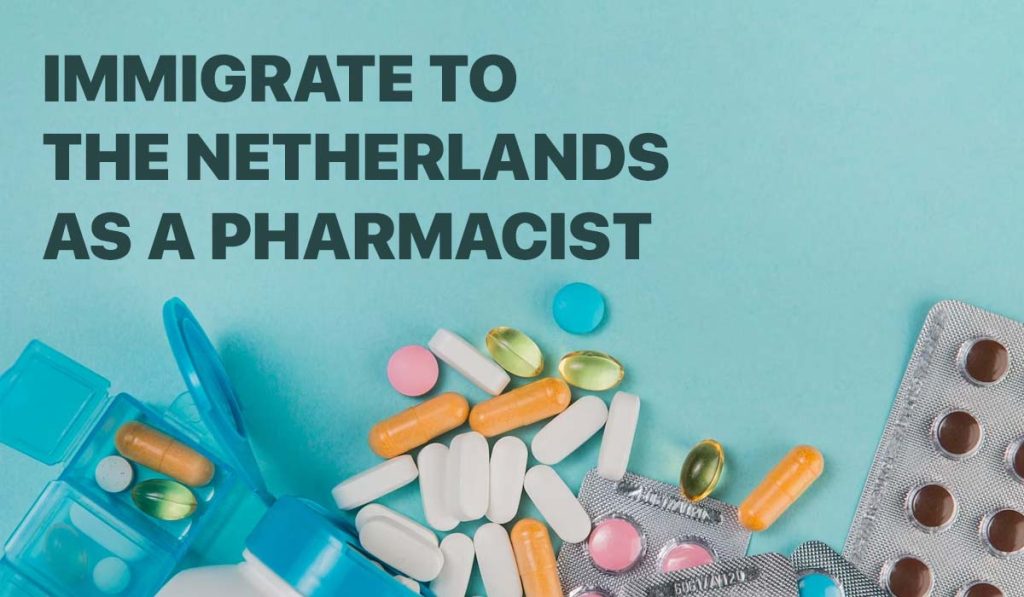
Netherlands visa options for immigrant pharmacists
You might need these visa options in the process.
Netherlands work visa
Every foreign person who wants to work in Japan needs a work visa. The first step is to find an employer who needs your skills. He/she applies for a work permit and then you can apply for a visa to enter the Netherlands.
You can learn more about Netherlands work visa from the Visa Library article or watch the prepared video on our YouTube channel.
Netherlands student visa
If you want to study for a pharmacy degree in the Netherlands, you need a student visa. Every foreign person who wants to study in the Netherlands needs a student visa. You must get admission to a Dutch university and then apply for a student visa.
You can learn more about the Netherlands student visa from the Visa Library article.
Netherlands tourist visa
In the recognition process, you might have to visit the Netherlands. If you are not among the visa-waived countries, you need a tourist visa to enter the country and complete the step.
You can learn more about the Netherlands tourist visa from the Visa Library article.
Qualifications do you need to immigrate and work in the Netherlands as a pharmacist
You need a pharmacy degree to work as a pharmacist in the Netherlands. If you get your degree abroad, you need the Dutch official’s approval and pass the recognition process. They will grant you a Declaration of Professional Competence to work in the country.
If you get your degree from inside the Netherlands, you need a 4-year degree, and it must be approved by the General Pharmaceutical Council.
Look at the above section to know what qualifications and items you need to get one of the above certificates.
How long does it take you to immigrate to the Netherlands as a pharmacist?
The time you have to wait to immigrate and work in the Netherlands as a pharmacist is up to the way you pick. There are two ways as you read through this page of the Visa Library. The first one is that you get your degree from a foreign country. In this case, you need to work on your language proficiency and send your documents for recognition. It is not clear how long it takes for Dutch officials to assess your application and decide on it. You might have to wait up to a year. Then you need to find a job that is up to you to persuade an employer to hire you. Then you need to get a work permit and MVV, which takes a few months.
The second way is that you study for a pharmacy degree in the Netherlands. In this case, it takes 4 years to complete your education and get your degree. Then you will have to pass one year of residency. After that, you need to find a job and apply for a work permit, but the process is easier and faster as you have studied in the Netherlands. It can be completed in one month.
Pharmacists’ salaries in the Netherlands.
Your salary as a pharmacist in the Netherlands depends on various factors. Different items will determine the final amount you will receive in your bank account:
- Your degree.
- Work experience
- Language fluency.
- The city you work in.
- The company or place you work with.
- Tasks and responsibility.
- Your position.
Different sources have mentioned various figures for your salary. According to Glassdoor, the average salary is about €68,950 per year.
According to Salary Explorer, the average salary is about 6,040 EUR per month, but the lowest salary is about 3,260 EUR, and the highest is about 9,120 EUR per month.
According to World Salaries, the average salary f a pharmacist in the Netherlands is about 72,380 EUR per year or 6,031 EUR per month. This source indicates that the lowest salary for a pharmacist is about 40,420 EUR per year or 3,368 EUR per month, while the highest salary is about 111,240 EUR per year or 9,270 EUR per month.
Your work experience is the most important factor that determines your salary. The mentioned source estimates these figures by your work experience:
| 0-2 Years | 44,780 EUR |
| 2-5 years | 59,380 EUR |
| 5-10 Years | 73,820 EUR |
| 10-15 Years | 87,640 EUR |
| 15-20 Years | 99,920 EUR |
| 20+ Years | 105,880 EUR |
The average salary with a BA is about 60,400 EUR, while the average with a BA degree is about 91,560 EUR.
Finally, according to the Payscale, the average salary is about €42,000 per year.
Let’s sum up…
You learned how to immigrate and work in the Netherlands as a pharmacist. This page of the Visa Library brought you the list of the requirements and the procedure you have to follow to become a nurse in the Netherlands. In case you have questions, write them down in the comment section. The Visa Library team will answer them.
FAQs
Yes, you need to become fluent in Dutch to pass the AKV test.
Yes, you can immigrate to the Netherlands as a pharmacist, but you must pass the recognition process.
The average salary is about EUR 45.000-55.000 per year.
How useful was this article?
Click on a star to rate it!
Average rating 3.9 / 5. Vote count: 7
No votes so far! Be the first to rate this article.
- Author
- Max-B.
- July 25, 2023

